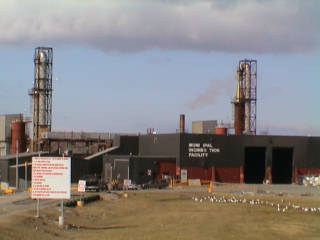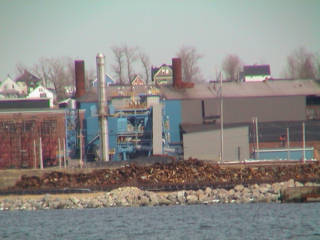Current Incinerators: Sydney Cape Breton Municipal Waste Incinerator - Grand Lake Rd. View older news articles about burning bio-medical waste at this plant  Toxic Waste Incinerator - Sysco Property
Excerpts-The Calgary Herald, Aug. 12, 1998
|
|
HAZARDOUS WASTE INCINERATION Government and its consultants are presenting hazardous waste incineration in the middle of Sydney as a safe method of remediating 700,000 tonnes of toxic sludge containing PAHs, PCBs and heavy metals, yet hazardous waste incineration at two other locations in Alberta and Quebec has resulted in contamination of the area surrounding both plants. The Quebec plant may be part of the Tar Ponds remediation project. SAINT-AMBROISE, QUEBEC Government has suggested that an alternative to incinerating 50,000 tonnes of PCB contaminated sediment in the middle of Sydney is to ship this material to the Recupere-Sol hazardous waste incineration facility in Saint-Ambroise, Quebec. "An emissions study commissioned by Quebec's public health authorities found that after just two years, the Saint-Ambroise plant was already giving off 'non-negligible1 quantities of 'persistent' toxins, including lead, mercury., cadmium, dioxins and furans." (Halifax Herald, January 5, 2002) These toxic substances have accumulated on forest soils within at least a one-kilometer radius of the stack. Is government prepared to add to this contamination? SWAN HILLS, ALBERTA A new study showing high PCB levels near the Swan Hills Waste Treatment Center is evidence the plant continues to leak, a University of Alberta professor said Tuesday. Biologist David Schindler said tests of snow 7km downwind of the plant in 1997 and 1998 show PCB levels 50 times higher than normal levels in the province. "The fact that both winters are equally high indicate it is probably fugitive emissions from the plant," Schindler said. Graham Latonas, Bovar's vice-president of environmental affairs, said that while the plant will unavoidably be a source of PCBs through fugitive emissions, they are at a safe level. Contact: Marlene Kane (902) 562-7049 or Mark Ferris (902) 539-2122 |